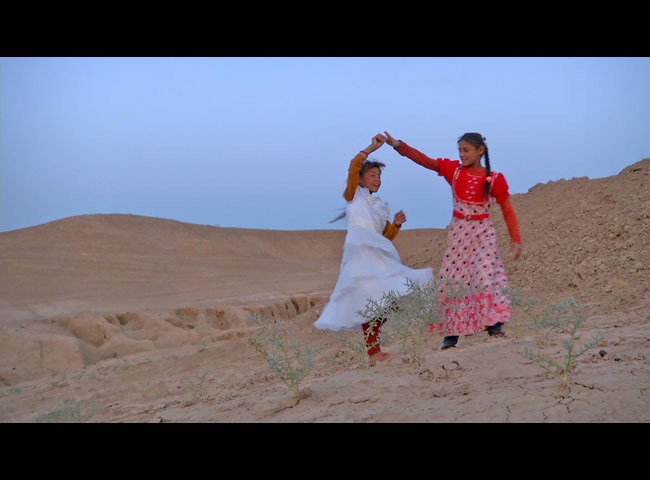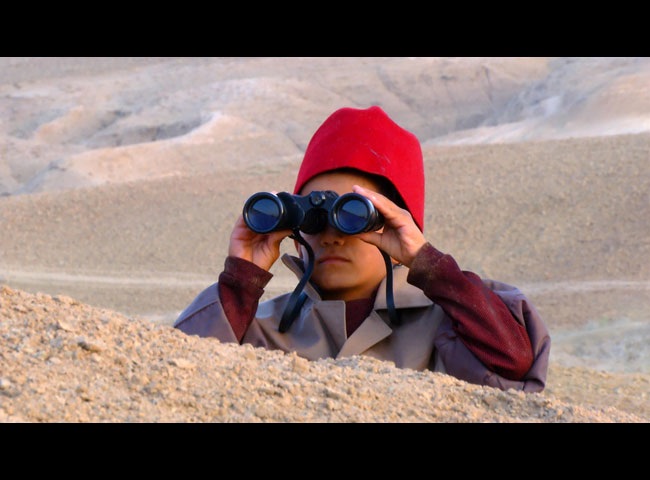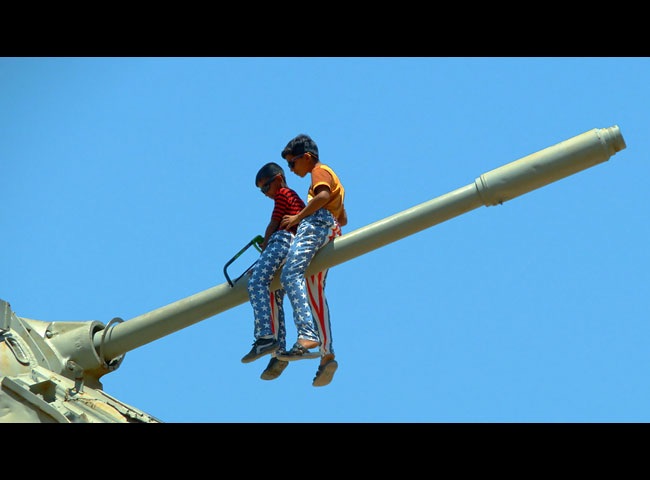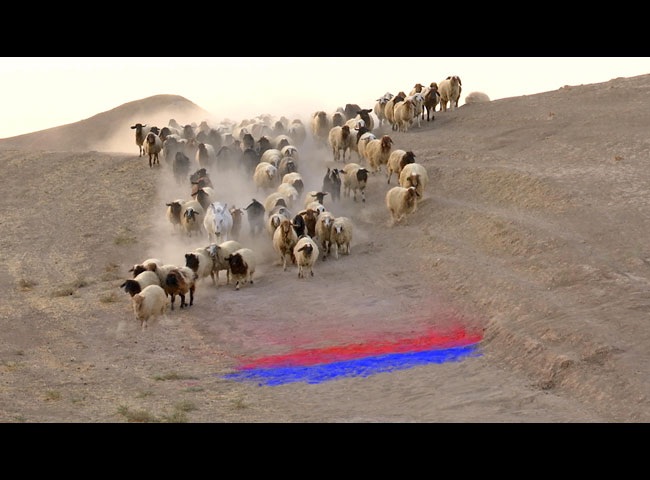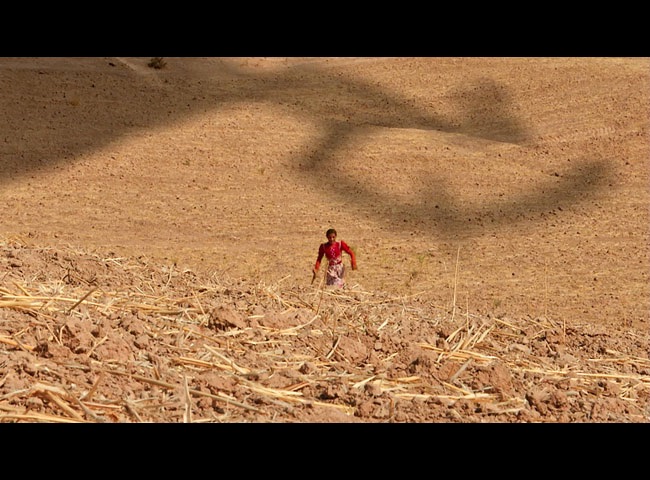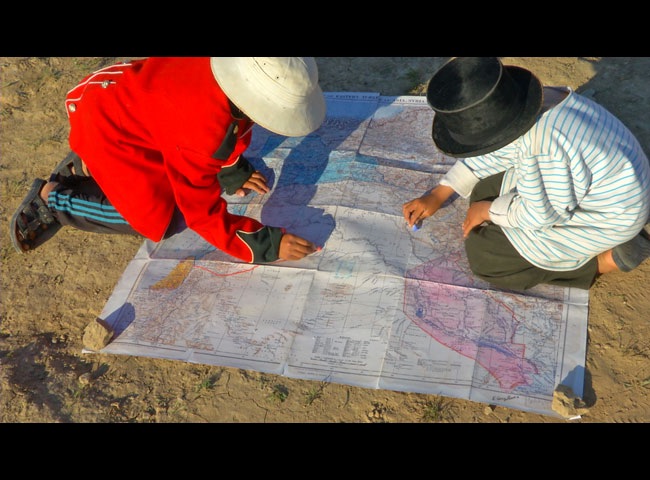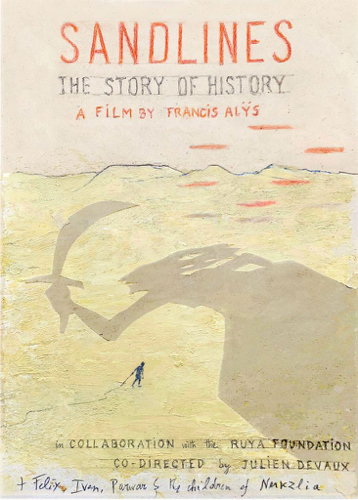Sandlines, the Story of History
-
Réalisé par Francis Alÿs, Julien Devaux • Écrit par Francis Alÿs, Julien Devaux
-
Mexique, Irak • 2020 • 61 minutes • HD • Couleur
- Réalisation :
Francis Alÿs, Julien Devaux - Écriture :
Francis Alÿs, Julien Devaux - Image :
Julien Devaux, Ivan Boccara, Francis Alÿs - Son :
Félix Blume - Montage :
Julien Devaux
- Production (structure) :
Francis Alÿs - Coproduction :
Ruya Foundation - Ayant droit :
Francis Alÿs
- N° ISAN :
non renseigné
Résumé
"Sandlines ou les lignes tracées dans le sable. Ainsi furent décrites les accords de Sykes-Picot, qui jetèrent les bases d’un siècle d’ingérence extérieure au Moyen-Orient et d’une histoire de violence qui dure toujours. C’est cette histoire qu’aborde le célèbre artiste Francis Alÿs ici, mais de biais, en rusant non avec l’Histoire mais avec sa représentation. Dans les collines environnant Mossoul, un Sykes haut comme trois pommes négocie avec un Picot prépubère. La nation irakienne, à l’identité toujours fragile, n’est ici composée que d’enfants, et son peuple figuré par des troupeaux de chèvres et de brebis.
Sandlines, on le comprend vite, choisit l’expérience sémiologique, le jeu sur les valeurs diverses des signes. C’est que le récit historique n’est pas ici premier : plutôt son appropriation par un groupe d’enfants mobilisé pour se raconter, à sa manière, une histoire qu’ils ne connaissent qu’imparfaitement. Compte donc plus la multiplication des formes figuratives : enfants acteurs, marionnettes, symboles tracés dans le sable et piétinés ou non par les troupeaux du coin. Mais l’Histoire ne fait pas ici système : Alÿs laisse aux enfants la liberté d’apporter le dérèglement, d’insuffler dans le récit sa part de jeu, et n’hésite pas à se mettre en scène en train de faire répéter certains de ses acteurs. Car ce qui se joue, en miroir de la capacité d’enfants à s’approprier un exercice étrange devenu ludique, est rien moins que la capacité d’une collectivité à s’approprier son propre récit."
(N.L. - FIDMarseille)
"Sandlines was how the Sykes-Picot agreement was described, which laid the foundations for a century of outside interference in the Middle East and a history of violence that is still going on. It is the story of History that the famous artist Francis Alÿs tackles here, but from an angle that does not play with history, instead playing with its representation. In the hills around Mosul, Sykes, knee-high to a grasshopper, negotiates with a prepubescent Picot. Here, the Iraqi nation, whose identity is still fragile, is made up only of children, its people played by herds of sheep and goats.
We soon understand that Sandlines has chosen the semiological experience, playing on the various values of signs and symbols. The historical account is not primordial here, but rather its appropriation by a group of children mobilised to tell in their own way a story that they do not fully understand. And then there’s the multiplication of figurative forms: child actors, marionettes, symbols drawn in the sand and then trampled – or not – by the local sheep and goats. But History is not a system here. Alÿs gives the children free rein to misbehave, to infuse the story with its share of play, and he has no qualms about dramatising some of his actors as they rehearse. At stake here, mirroring the children’s capacity to appropriate a strange but enjoyable exercise, is nothing less than a community’s capacity to appropriate its own narrative."
(N.L. - FIDMarseille)
Sélections et distinctions
- 2020 • FILAF - Festival International du Livre d'Art et du Film • Perpignan (France) • Compétition oficielle
- 2020 • IFFR - International Film Festival Rotterdam • Rotterdam (Pays-Bas) • Deep Focus & Signatures
- 2020 • Sundance Film Festival • Utah (États-Unis) • New Frontier Films & Performances
- 2020 • FIDMarseille - Festival International de Cinéma de Marseille • Marseille (France) • Section Autres joyaux
Comment avoir accès au film ?
- Sortie en salle
-
Édition DVD
- Il n'existe pas d'édition DVD à notre connaissance
-
Accès VOD
- Il n'existe pas d'accès en VOD à notre connaissance
- Distribution
- Aide sur les moyens d'accéder à un film
